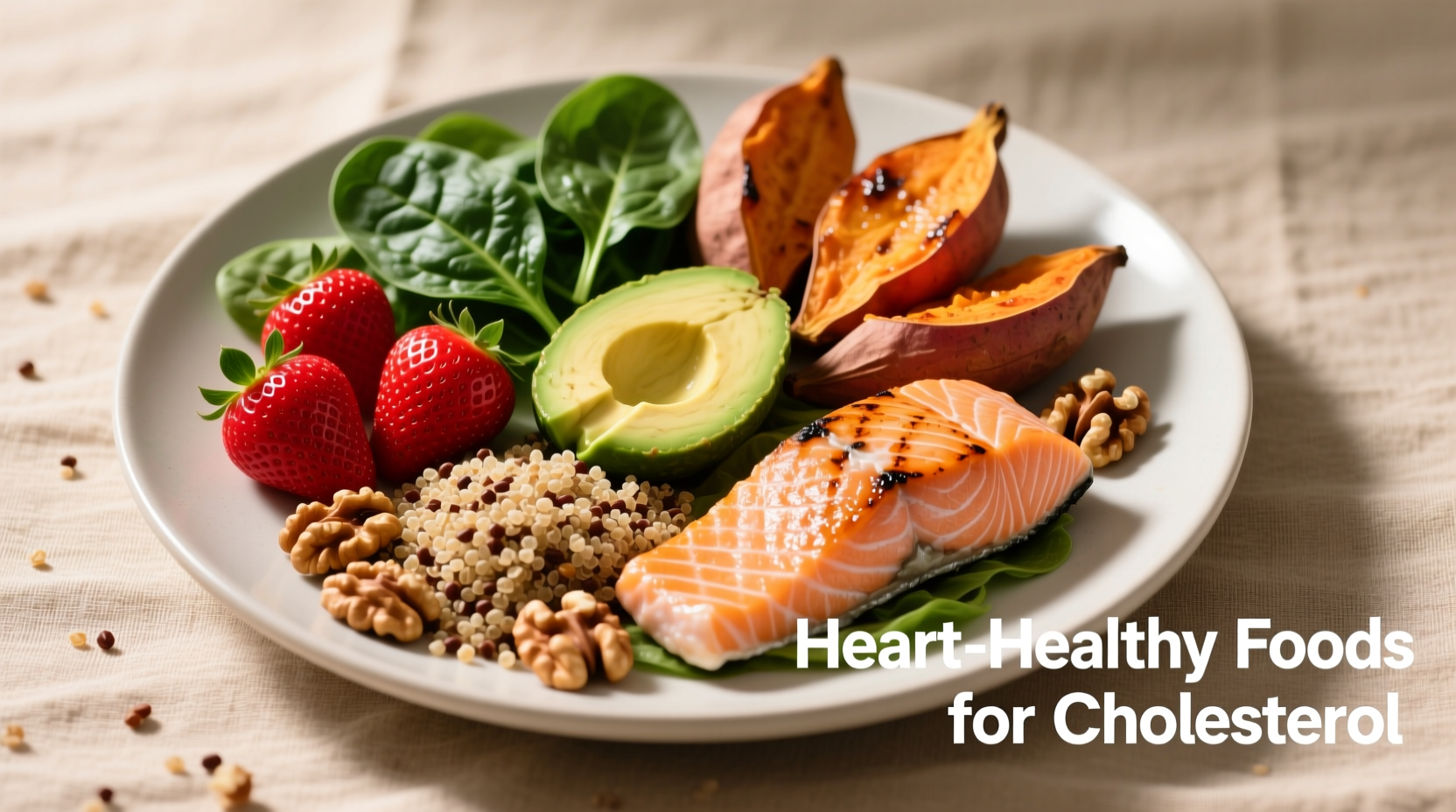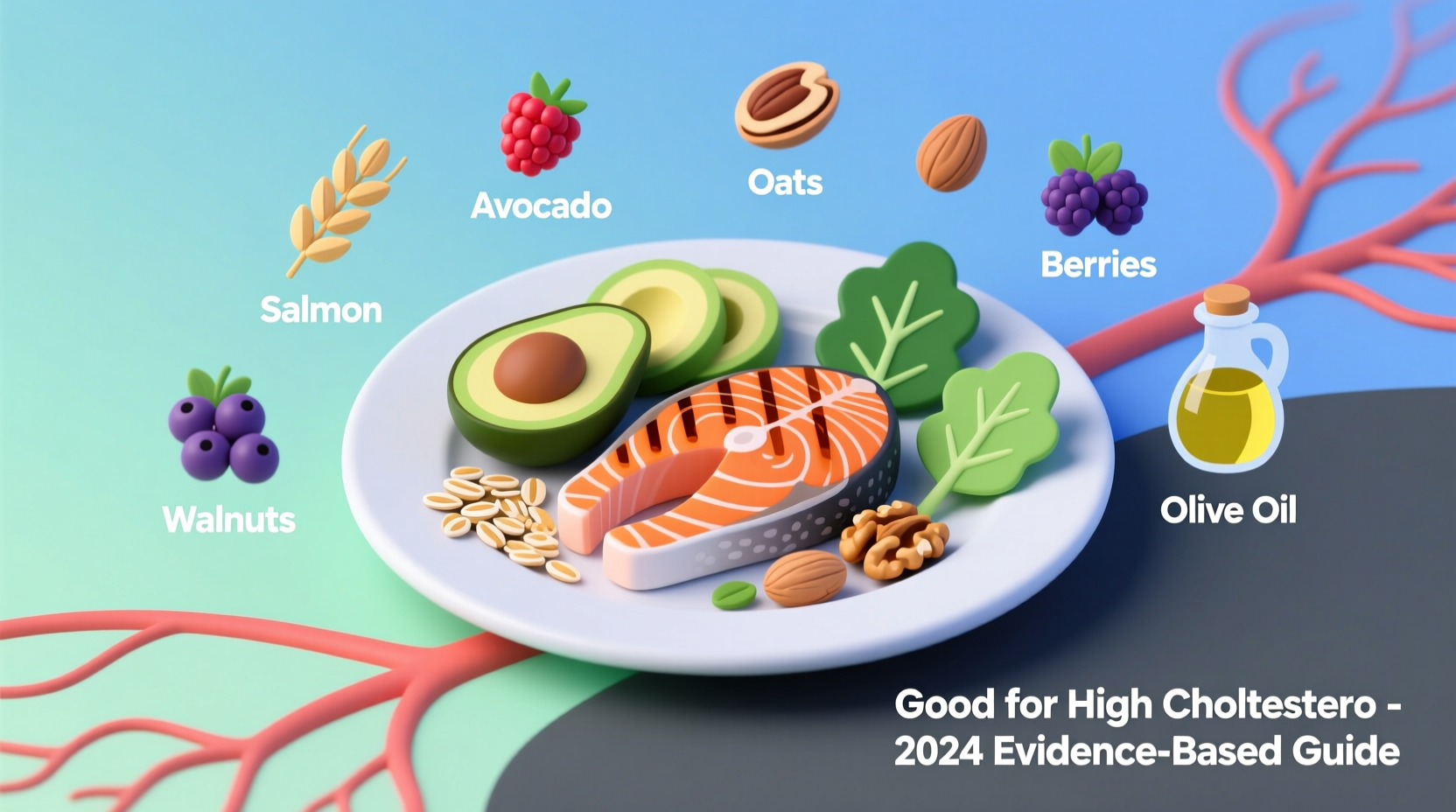Discover how to transform your diet into a powerful tool for cholesterol management. This evidence-based guide reveals exactly which foods scientifically proven to improve your lipid profile, how they work, and practical ways to incorporate them into your daily meals.
Understanding Cholesterol and Dietary Impact
Cholesterol is essential for bodily functions, but imbalanced levels can lead to cardiovascular problems. LDL (low-density lipoprotein) carries cholesterol to tissues and can build up in arteries, while HDL (high-density lipoprotein) removes excess cholesterol. The right dietary choices can significantly improve your cholesterol ratio without medication.
According to the American Heart Association, dietary changes alone can reduce LDL cholesterol by 10-15% in just 4-6 weeks. The key lies in understanding which foods actively lower harmful cholesterol while supporting heart health.
Top Evidence-Backed Cholesterol-Lowering Foods
Soluble Fiber Powerhouses
Soluble fiber binds to cholesterol in the digestive system, preventing absorption. The National Heart, Lung, and Blood Institute recommends 5-10 grams of soluble fiber daily for cholesterol reduction.
- Oats and barley: Contain beta-glucan, which can lower LDL by 5-10%. Just 1.5 cups of cooked oatmeal provides 6 grams of soluble fiber.
- Beans and legumes: Black beans, kidney beans, and lentils provide 4-8 grams of soluble fiber per serving. A 2014 study in the Canadian Medical Association Journal found that eating one serving of legumes daily reduced LDL by 5%.
- Apples, citrus fruits, and pears: Rich in pectin, a soluble fiber that reduces cholesterol absorption.
Healthy Fats That Improve Lipid Profiles
Replacing saturated fats with unsaturated fats is crucial for cholesterol management. The American Heart Association's 2017 advisory confirms that replacing just 5% of saturated fat calories with unsaturated fats reduces heart disease risk by 10-15%.
- Fatty fish: Salmon, mackerel, and sardines contain omega-3 fatty acids that lower triglycerides and increase HDL. The American Heart Association recommends two 3.5-ounce servings weekly.
- Nuts: Walnuts and almonds provide plant sterols and healthy fats. A meta-analysis in the American Journal of Clinical Nutrition showed that eating 2-3 ounces of nuts daily reduced LDL by 5.4%.
- Olive oil: Extra virgin olive oil contains polyphenols that prevent LDL oxidation. Use it as your primary cooking oil, replacing butter or vegetable oils.

| Food Category | Key Cholesterol-Lowering Component | Recommended Daily Amount | Expected LDL Reduction |
|---|---|---|---|
| Oats and barley | Beta-glucan | 1.5 cups cooked | 5-10% |
| Fatty fish | Omega-3 fatty acids | 2 servings/week | Triglycerides: 15-30% |
| Nuts (walnuts, almonds) | Plant sterols, unsaturated fats | 1.5 ounces | 5-7% |
| Olive oil | Polyphenols, monounsaturated fats | 2 tablespoons | 5-8% |
| Fortified foods | Plant sterols/stanols | 2 grams | 8-10% |
Foods to Limit or Avoid with High Cholesterol
Certain foods significantly impact cholesterol levels. The FDA identifies these as particularly problematic:
- Trans fats: Found in fried foods and many processed snacks. Eliminating trans fats can lower LDL by 7-10% while raising HDL.
- Saturated fats: Primarily in red meat, full-fat dairy, and tropical oils. Limit to less than 6% of daily calories.
- Refined carbohydrates: White bread, pastries, and sugary drinks can lower HDL and increase triglycerides.
Realistic Timeline for Dietary Changes
Understanding when to expect results helps maintain motivation. Based on research from the Harvard T.H. Chan School of Public Health, here's what to anticipate:
- 2-4 weeks: Initial improvements in LDL levels, especially with increased soluble fiber intake
- 4-8 weeks: Noticeable changes in overall lipid profile, including HDL improvements
- 3 months: Maximum dietary impact on cholesterol levels (10-15% LDL reduction)
- 6+ months: Sustained benefits with continued adherence, plus potential medication reduction under doctor supervision
Remember that individual responses vary based on genetics, baseline levels, and overall health status. The CDC emphasizes that dietary changes work best when combined with regular exercise and maintaining a healthy weight.
Practical Implementation Strategies
Transitioning to a cholesterol-friendly diet doesn't require drastic changes. Try these evidence-based approaches:
Simple Swaps for Better Cholesterol
- Replace butter with avocado or olive oil in cooking
- Choose oatmeal instead of sugary cereals for breakfast
- Add beans to soups and salads for extra fiber
- Snack on a small handful of nuts instead of chips
- Use citrus juices and herbs instead of creamy sauces
Sample One-Day Meal Plan
- Breakfast: Oatmeal with sliced banana and walnuts
- Lunch: Lentil soup with a side salad dressed in olive oil and lemon
- Snack: Apple slices with almond butter
- Dinner: Baked salmon with roasted Brussels sprouts and quinoa
When Diet Alone Isn't Enough
While dietary changes significantly impact cholesterol, certain situations require additional approaches. The American College of Cardiology notes that:
- Genetic conditions like familial hypercholesterolemia often require medication alongside diet
- Individuals with existing heart disease may need more aggressive treatment
- Some people respond less to dietary changes due to genetic factors
Always consult with your healthcare provider before making significant dietary changes, especially if you're already taking cholesterol medication. The National Library of Medicine stresses that dietary changes should complement, not replace, medical treatment when prescribed.
Common Questions About Foods for High Cholesterol
How quickly can diet lower cholesterol levels?
Most people see measurable improvements in LDL cholesterol within 4-6 weeks of consistent dietary changes. Significant reductions of 10-15% typically occur within 8-12 weeks. The American Heart Association notes that soluble fiber from oats and beans shows effects in as little as 2 weeks, while omega-3 fatty acids from fish take 4-8 weeks to demonstrate full benefits.
Can I still eat eggs if I have high cholesterol?
Most healthy people can consume 1 whole egg daily without significantly affecting cholesterol levels. The Dietary Guidelines Advisory Committee states that for the general population, dietary cholesterol has less impact than saturated fats. However, individuals with diabetes or genetic cholesterol disorders may need to limit egg yolks to 2-4 per week. Egg whites can be consumed freely as they contain no cholesterol.
Are plant sterols really effective for lowering cholesterol?
Yes, plant sterols and stanols are clinically proven to reduce LDL cholesterol by 7-10% when consumed at 2 grams daily. The FDA has approved health claims for these compounds. They work by blocking cholesterol absorption in the digestive tract. Many fortified foods like certain margarines, orange juices, and yogurts contain added plant sterols. However, they don't raise HDL or lower triglycerides, so they should be part of a comprehensive dietary approach.
What's the difference between good and bad cholesterol?
LDL (low-density lipoprotein) is considered "bad" cholesterol because it transports cholesterol to tissues and can build up in artery walls, leading to plaque formation. HDL (high-density lipoprotein) is "good" cholesterol because it removes excess cholesterol from the bloodstream and carries it back to the liver for elimination. The goal is to lower LDL while maintaining or increasing HDL levels. Triglycerides, another blood fat, also contribute to heart disease risk when elevated.
Can I drink coffee with high cholesterol?
Yes, but preparation method matters. Unfiltered coffee (like French press or Turkish coffee) contains compounds called cafestol and kahweol that can raise LDL cholesterol. Filtered coffee, where paper filters remove these compounds, has minimal impact on cholesterol. The American Journal of Clinical Nutrition reports that switching from unfiltered to filtered coffee can lower LDL by 5-8%. Moderate consumption of filtered coffee (3-4 cups daily) appears safe for most people with high cholesterol.











 浙公网安备
33010002000092号
浙公网安备
33010002000092号 浙B2-20120091-4
浙B2-20120091-4